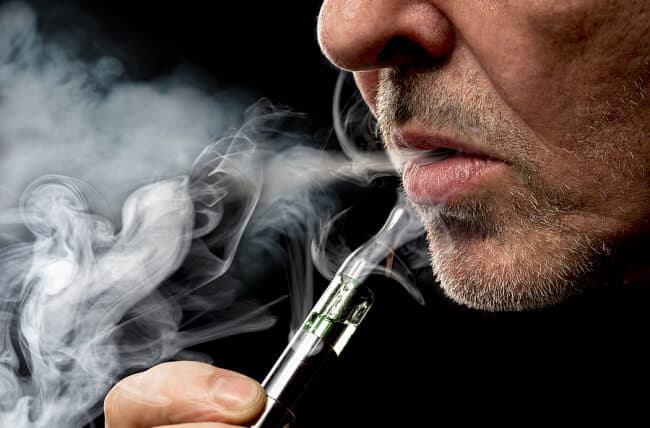Smokeless Tobacco Leads to Higher Carcinogen Levels than Cigarettes

So much for smokeless tobacco products being the “safe” answer to nicotine addiction. A new study published in the journal Cancer Epidemiology, Biomarkers & Prevention found that users of smokeless tobacco products have higher concentrations of nicotine in their systems as compared to those who smoke cigarettes. Additionally, the study that included almost 24,000 participants also found that smokeless tobacco users had higher levels of other compounds known to increase the risk of cancer, such as tobacco-specific nitrosamines, as compared to cigarette-smoking peers.
Researchers from the Centers for Disease Control (CDC) and the Food and Drug Administration (FDA) conducted the study, says TIME, analyzing the blood and urine samples from participants between 1999 and 2012. Wrote the researchers: “Our results have shown that smokeless tobacco users have high levels of known harmful and addictive constituents and that in some cases these levels are higher than those observed among cigarette smokers. This finding is a cause of considerable concern for individual and public health.”
Marketing
The marketers behind smokeless tobacco products aren’t the first ones to try to put addictive products in front of consumers and downplay the potential dangers. Addictiveness equals loyal customers, so it’s in their best interest to make the product look like a good time – at least for as long as it takes to get people hooked. Big Tobacco did this first with cigarettes and is continuing to do so with e-cigarettes. The fact that many of these products comes in flavors geared toward kids’ tastes (e.g., bubble gum and tutti frutti) demonstrates that the hope is to get consumers interested when they are young.
The study researchers pointed out that about 10 percent of male high school students use smokeless tobacco products, and many more, both boys and girls, use e-cigarettes, the latest nicotine vehicle to hit the shelves. All nicotine products are concerning, and the health effects and consequences are negatively impactful at every age.
E-cigarettes Are NOT a Safe Alternative
The “vaping” trend is not a safe alternative to smoking cigarettes, and using smokeless tobacco products is not a positive choice at any age, either. One study shows that young people who use e-cigarettes are more likely to start smoking cigarettes, exposing themselves to all the risks that come with inhaling the smoke in addition to the carcinogens found in tobacco. There is no evidence to support the use of e-cigarettes as a tool in the process of quitting smoking. Unfortunately, the use of e-cigarettes has thus far proven to be a gateway into cigarette smoking as opposed to a gateway to nicotine abstinence.
Quitting Smoking during Rehab
New studies come out all the time that state the benefits of helping clients in addiction treatment to quit smoking while they are in residence. In one such study published in the journal Addiction Science & Clinical Practice, the researchers wrote: “The potential benefits of addressing nicotine addiction as part of substance dependency treatment may include improved response to interventions for other addictions and, over the long term, reduced tobacco-related morbidity and mortality.”
The round-the-clock support, inability to buy cigarettes or smokeless tobacco products, and peer support can turn the goal of quitting smoking into a reality as clients learn positive coping mechanisms for dealing with the urge to relapse, and find better and healthier ways to deal with discomfort, boredom, and other issues that often drive addictions of all kinds.
Quitting Nicotine Products
If you currently use cigarettes, smokeless tobacco products, or e-cigarettes, there is no better New Year’s resolution for 2016 than putting use of all these substances in the past. If you are also struggling with a drug or alcohol abuse problem, you can talk to your therapist or treatment team about adding the goal of quitting tobacco products to your treatment plan. But if you are attempting to go it alone and/or if other substance use is not an issue, you can increase your likelihood of success in quitting use of tobacco products by:
• Define your “why.” Why do you want to quit using tobacco products? What would you like to see and do in your life with the increased physical health, not to mention money in hand, that you will gain by quitting? Write it all out and post it where you can look at it when you are feeling the urge to relapse.
• Connect with others who are quitting. Online groups, in-person support groups, or a friend who is also interested in quitting can help you to stay focused on the goal, share your struggles as well as your successes, and give you the opportunity to provide support to others, which can also boost your own progress.
• Explore treatment options. Talk to your doctor about the many available treatments that can help to make the process of quitting easier. You may consider hypnotherapy, the use of certain medications, classes, and other options.
• Go easy on yourself. Try not to make choices in day-to-day life that increase your stress level as you go through the initial stages of stabilizing in recovery. Nicotine addiction is, in fact, an addiction, which means that withdrawal symptoms may be a serious issue. Give yourself the room and freedom to focus on healing, and pamper yourself a little bit – a massage, long walks, and extra sleep – to reduce the likelihood of relapse.
If you have quit using nicotine products in the past, what is the best thing you found to aid your progress? If you have tried a number of times to quit and been unsuccessful, what are the obstacles you faced?